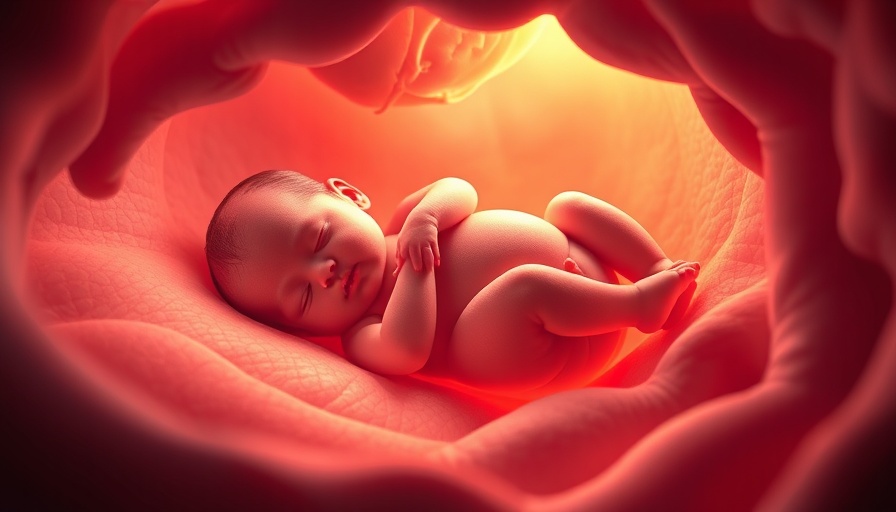
Could Maternal Diet Choices Shape Fetal Health?
Recent research underscores the significant impact a mother's diet can have on fetal health, particularly concerning high-fat diets. A study indicated that maternal intake of high-fat foods not only affects the mother's body but also creates a stressful environment for the developing fetus's liver, potentially setting the stage for metabolic disorders and obesity in later life.
The Role of the Placenta in Fetal Development
The placenta serves a vital function by acting as the interface between mother and fetus, facilitating nutrient transfer while protecting the developing baby from harmful substances. However, a high-fat diet can remodel the structure of the placenta, compromising its ability to deliver necessary nutrients and leading to oxidative stress within the fetal liver.
Understanding Fetal Liver Stress from Maternal High-Fat Diets
Fetal liver stress, which may manifest as steatosis or increased fat deposits, occurs when maternal dietary choices disrupt normal metabolic pathways. Key enzymes responsible for fat metabolism were found to be dysregulated in the livers of fetuses whose mothers consumed high-fat diets. This dysregulation is concerning as it may lead to long-term obesity and metabolic health issues in the offspring.
Can Excessive Fat Intake in Pregnancy Lead to Metabolic Disorders?
The implications of maternal obesity and high-fat diets extend beyond pregnancy. Evidence supports that such exposure increases the likelihood of offspring developing metabolic syndrome and related diseases, with research advocating for early life interventions that promote a balanced diet for pregnant individuals.
How Maternal Disease States Affect Offspring's Microbiome
In addition to liver stress, maternal high-fat diets alter the gut microbiome, which plays a crucial role in metabolic health. Studies show that maternal obesity can lead to a less diverse gut microbiota in offspring, which is associated with increased risks of metabolic diseases. Combining insights from recent studies reveals a concerning cycle where maternal diet and health can dictate the future metabolic health of their children.
Future Perspectives: The Role of Diet in Prenatal Care
As our understanding of maternal diets’ impact on fetal health deepens, the call for nutritional education becomes more pertinent. Health professionals must emphasize the significance of balanced diets during pregnancy to mitigate risks of liver stress and potentially debilitating metabolic disorders in future generations.
What Can New or Expecting Parents Do?
For expecting parents, understanding the connection between diet and health is vital. Engaging in conversations with healthcare providers about nutrition, exploring balanced diet plans, and understanding how diet impacts fetal health can empower mothers to make informed choices that benefit both them and their children.
In summary, the interplay of maternal diets, particularly high-fat consumption, can have profound implications on fetal health. As research evolves, integrated strategies promoting optimal nutrition during pregnancy will be crucial in reducing the incidence of metabolic disorders in offspring. Expecting mothers are encouraged to consult healthcare professionals for personalized dietary guidelines.
 Add Row
Add Row  Add
Add 




Write A Comment